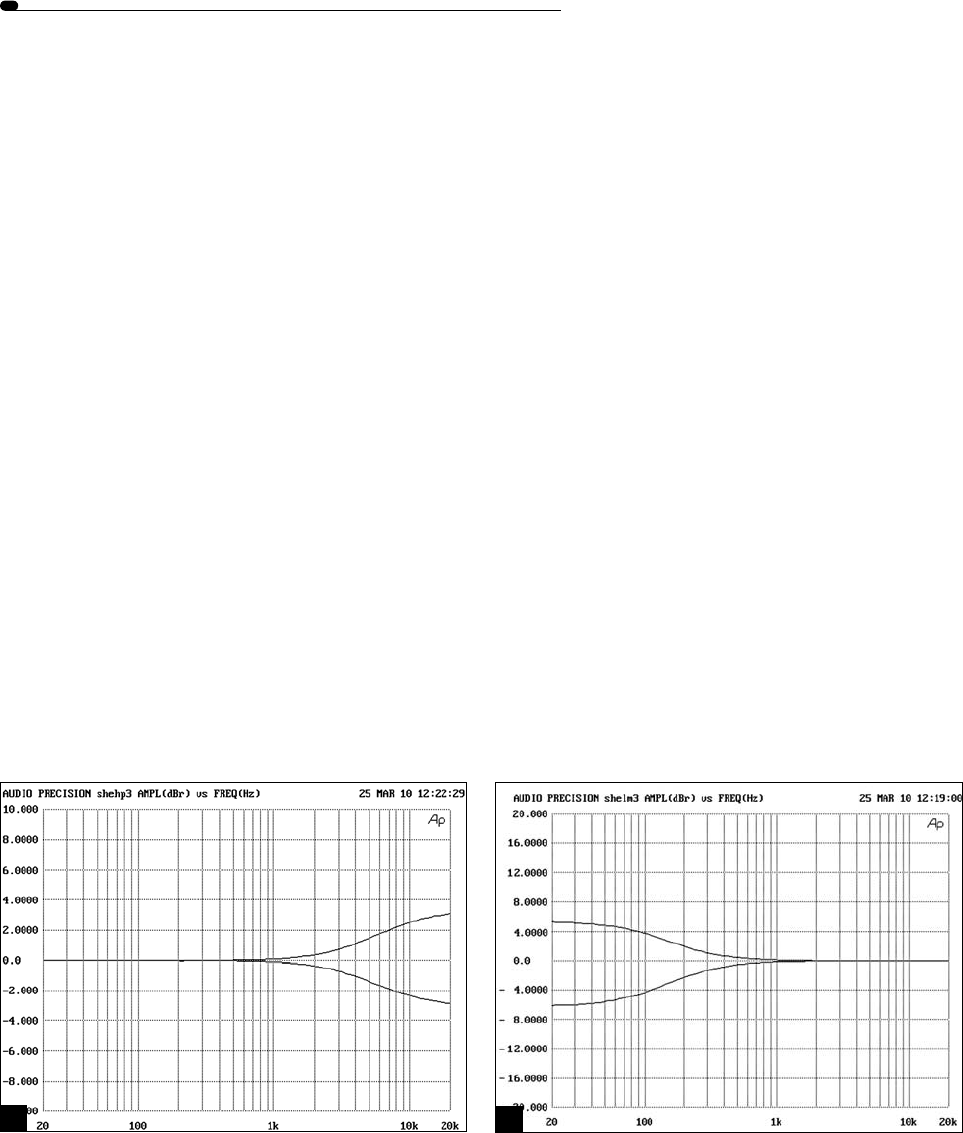
USING THE SYSTEM
Running in
As in all brand new loudspeaker the drivers need some run in period: they are mechanical elements demanding a little time to
settle and adapt to the climatic environment This period will vary depending of the working conditions and may take up to a
few weeks. Avoid pushing the speakers very hard during their first hours of use, but to accelerate the run-in process it is good
practice to operate the speakers at moderate levels for 20 hours or so, with programmes having significant low frequency
content. Only once the transducers have come to stabilize will you get the optimum performance.
Solo6 Be/Twin6 Be/Sub6 Controls
Speaker switch (Left/Right) : only for Twin6 Be
This switch allows the user to select which one of the two 6.5” drivers will reproduce the midrange. By convention, the “Right”
position of the switch will select the left hand side driver (when facing the cabinet laying horizontally). Conversely in the “Left”
position the right hand side driver (facing the cabinet) will be the one operating in the mid frequencies. It is easy to figure how
useful this control is when it comes to get the best possible imaging in any cabinet layout (fig. E,F).
Input switch
The input sensitivity can be adjusted using this two position switch. The +4dBu position is suitable for standard professional
audio equipment, while -10dBV position may be used for other types of sources providing a lesser output level.
HF contour
This control allows for a continuous adjustement of the high frequency level; it operates above 5kHz within a ±3dB range (fig. H).
LF contour
This control allows for a continuous adjustement of the low frequency level; it operates below 150Hz within a ±6dB range (fig. I).
This adjustement is typically useful to deal with possible excessive level of LF energy resulting from acoustic coupling associated
with close reflecting surfaces: mixing console, nearby walls…
Power on indicator
A power on LED is located on the cabinet front panel, near the Focal logo.
8
H
I


















